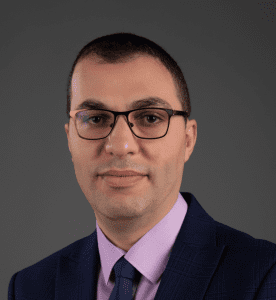
Dates: Multiple Dates
Duration: 18 Hours
Level: Executive
Delivery: Face-to-face and Online
Certificate of Completion from Queen Mary University of London
Advanced Healthcare Leadership
Today’s healthcare professionals do much more than practice medicine-they must also be fluent in business, finance, operation management and the rapidly evolving regulatory environment. This course has been designed to introduce a variety of perspectives on advanced leadership skills for the healthcare professionals. The course aims to enable leaders and decision makers in the health care to introduce fit-for-purpose advanced leadership styles and approaches to their organisations.
The course will provide participants within the health care sectors with the best scientific and management solutions to implement effectively in their organisations. At the end of the course attendees should be able to acquire a comprehensive knowledge and practical experience about advanced leadership styles and approaches in response to the various challenges facing the healthcare sector particularly in the post Covid-19 era.
This course provides the participant with a comprehensive update of healthcare business processes, value-creating activities, and best practices for managing a supply chain – from forecasting and demand management to sourcing and procurement, to sales and project planning, and through logistics (i.e., warehousing, distribution, and transportation), out to the customer. The course covers both the practical and strategic perspectives of GSCM and sustainability. The course also provides an overview of the challenges that can be faced by healthcare systems and how artificial intelligence and digital innovations can improve the efficiency, quality, and safety of healthcare services.
This course will discuss healthcare economics and entrepreneurial challenges, considering new technologies and other economic factors, and explore the theoretical framework behind market-driven healthcare, controlling cost growth, and shrinking providers’ revenue. The course will also allow participants to gain an insight into core economic and entrepreneurial principles to create more competitive products/services, development, and effective growth strategies, negotiate better reimbursement contracts and strategic alliances, and gain a better understanding of the interactions between industries in the healthcare sector and what economic forces are shaping the new global healthcare landscape.
This course will help advance women leaders within their organisations, and help organisations develop their women leaders. It will show the benefit in embracing such an approach, which benefits both women and their organisations, by delivering evidence-based strategies, skills development and education that help women at various stages of their healthcare careers step into and succeed in leadership positions.
Learning Outcomes:
This integrative course aims to develop a deeper understanding of the theoretical and practical aspects to management and leadership in the healthcare sector, and to develop the essential skills and competencies necessary to plan, monitor and control different tasks and events in the healthcare across the world.
Individual Learning Outcomes:
Participants will have insight into the future of healthcare in the digital transformation era including issues to do with artificial intelligence, data science, knowledge management, etc. In addition, critical analysis; interactive and team working; creativity; and problem solving. This course will utilise personal development planning for work life balance and career goals as well as complementing the different management skills already developed through earlier other (if any) management training and courses such as effective time management and monitoring tools.
Leadership goals:
- Identifying personal mission and goals to improve leadership skills.
- Defining different leadership styles.
- Developing and perfecting individual leadership style.
- Discuss Primary care leadership for population health.
- Develop your model of leadership in a primary care setting.
- Demonstrate knowledge of medical manufacturing, inventory, operations management, domestic and global logistics knowledge and agilities.
- AI, data science and consumerism in healthcare.
Strategic plans:
- Developing short-term and long-term goals that support the institution/organization
mission. - Utilizing management skills to effectively lead the team.
- Establishing effective communication with internal and external stakeholders.
- Applying successful communication strategies for negotiating and conducting difficult conversations.
- Demonstrate ability to understand modes of transportation (air, land, sea and digital) use them to ensure reliable transport, storage, and handling of medical supplies.
Evaluation processes:
- Identifying outcome measures and evaluating the organization’s success in achieving goals
- Applying specific skills and procedures related to advocacy and policy at local, regional, and national levels ensuring quality and safety.
- Identifying the key challenges, success metrics, and implementation strategies of innovative healthcare solutions.
- Ability to apply appropriate quantitative methods to analyse business data and to apply quantitative modelling techniques to analyse business plans and decisions in Global healthcare supply chain management.
- Time value of money and financial statements, and how to value a project or company.
- Embed reflective practice and quality improvement in daily, monthly and annual cycles for CPD and management appraisal.
- Practise using inclusive techniques through learning hubs for CPD and to get the best out of teams and partnerships.
Organization Learning Outcomes
Develop an understanding of the different approaches to leadership and management to ensure the organisation is at peace with itself and confident about its future.
- How organisations can reposition and rebrand themselves as an excellent healthcare provider of products and/or services, achieve national and international targets as well as addressing various health disparities including women’s health, mental health and others.
- How organisations can effectively handle the changing expectations of end-users (patients); increased competition in the sector; reduction in income; changing technology and other issues as the result of Covid 19 pandemic.
- Exploring the key technologies associated with artificial intelligence and digital healthcare and determining the role of advanced technologies in shaping the future of healthcare.
- Knowledge of healthcare business and operational practice and a deep understanding of theory and practice in the field of supply chain management.
- Knowledge of current basic and advanced concepts in supply chain management and an ability to integrate and apply these concepts to practical business problems and sustainability.
- Planning concepts to ensure efficient and effective sourcing operations in healthcare industry.
- Rethinking current challenges in health care policies and sustainable practices.
- Decreasing the gender gap in leadership in healthcare.
- Understanding the role of women in influential leadership positions, different traits associated with women in management and the different barriers facing women in leadership positions.
- Learning about the benefits of having women in the workforce.
The Team
The course is designed and will be delivered by the world’s top and renowned experts on healthcare and leadership:
Professor Farida Fortune (London – UK) Professor of Medicine in relation to Oral Health, Director Centre for Immunobiology and Regenerative Medicine and Director London Behçet’s Centre of Excellence, Faculty of Medicine and Dentistry, Queen Mary University of London
Professor of Medicine in relation to Oral Health, Director Centre for Immunobiology and Regenerative Medicine and Director London Behçet’s Centre of Excellence, Faculty of Medicine and Dentistry, Queen Mary University of London
Dr. Sohier Elneil (London – UK) Consultant Urogynaecologist and Uro-neurologist and Lead London Complex Mesh Centre; University College London Hospitals NHS Foundation Trust; Consultant Urogynaecologist, National Hospital for Neurology and Neurosurgery and Honorary Associate Professor, University College London
Consultant Urogynaecologist and Uro-neurologist and Lead London Complex Mesh Centre; University College London Hospitals NHS Foundation Trust; Consultant Urogynaecologist, National Hospital for Neurology and Neurosurgery and Honorary Associate Professor, University College London
Dr. Christian Ehiobuche (New Jersey – USA) Chair MBA in Healthcare Administration and Leadership Program and Assistant Professor of Business Studies, Management, Healthcare Administration, School of Business, Stockton University
Chair MBA in Healthcare Administration and Leadership Program and Assistant Professor of Business Studies, Management, Healthcare Administration, School of Business, Stockton University
Dr. Muna Abdel Aziz (Manchester – UK) Director of Public Health for Salford from January 2020; previously held various leading positions such as Director of Public Health and Prevention Services for Warrington; Deputy Director of Sudan Public Health Institute; International CPD Adviser for the UK Faculty of Public Health, and Training Programme Director for Public Health Specialty in Cheshire and Merseyside which was part of Health Education England
Director of Public Health for Salford from January 2020; previously held various leading positions such as Director of Public Health and Prevention Services for Warrington; Deputy Director of Sudan Public Health Institute; International CPD Adviser for the UK Faculty of Public Health, and Training Programme Director for Public Health Specialty in Cheshire and Merseyside which was part of Health Education England
Dr. Rawad Hammad (London – UK) Co-Founding Director, Smart Health Centre and MSc Programme Leader and Senior Lecturer in Computer Science and Digital Technologies, University of East London
Co-Founding Director, Smart Health Centre and MSc Programme Leader and Senior Lecturer in Computer Science and Digital Technologies, University of East London
Professor Allam Ahmed (London – UK) Professor of Knowledge Management and Sustainable Development; Fellow Faculty of Public Health (FFPH) and Fellow Chartered Institute of Marketing (FCIM); Founding President World Association for Sustainable Development; Founding Director SDGs Universities Initiatives; and Honorary Professor Faculty of Medicine and Dentistry and Senior Policy Fellow Global Policy Institute, Queen Mary University of London
Professor of Knowledge Management and Sustainable Development; Fellow Faculty of Public Health (FFPH) and Fellow Chartered Institute of Marketing (FCIM); Founding President World Association for Sustainable Development; Founding Director SDGs Universities Initiatives; and Honorary Professor Faculty of Medicine and Dentistry and Senior Policy Fellow Global Policy Institute, Queen Mary University of London
Program Structure:
- The course will provide professionals within the health care sectors with the best scientific and management solutions to implement effectively in their organisations.
- There will be an activity or set of activities for each session which will be designed to help you engage with the introduction to the theories explored within the course.
- Your Facilitator will be on hand to guide you through the programme and will expect you to bring personal experience and reflection on the topics covered.
- Group work will be required for participants to engage in the course. Such activity allows participants to embed the new knowledge within their experience through active discussion and challenge.
Modules
- Post Covid-19 healthcare management and leadership challenges
- General introduction to leadership in the healthcare
- Strategic management and planning in the healthcare
- Learning Hubs for Continuous Professional Development
- Practical Approach to Leadership in Primary Care
- Advancing women in healthcare leadership
- Dental healthcare
- Healthcare Ethics and Regulations
- Healthcare Marketing
- Global Healthcare Supply Chain Management and Sustainability
- Economics of Health care and Business of Healthcare Delivery
- Digital transformation and the future perspectives for smart healthcare
- Healthcare Research and Development
- Understanding the UN Agenda 2030 and the 17 SDGs, targets and indicators
DAY ONE (09:00-15:00)
09:00 – 09:30 Arrival Refreshments and Networking
09:30 – 11:00 Session (1) Transformative Leadership in Healthcare
11:00 – 11:30 Tea/Coffee Break and Networking
11:30 – 13:00
Session (2A) Practical Approach to Leadership in Primary Care
Session (2B) Advancing Women in Healthcare Leadership
13:00 – 13:30 Lunch Break and Networking
13:30 – 15:00 Session (3) Healthcare Ethics and Regulations
End of Day One
DAY TWO (09:00-15:00)
09:00 – 09:30 Arrival Refreshments, Networking and Reflection on Day One
09:30 – 11:00 Session (4) Strategy and Planning in Health and Care
11:00 – 11:30 Tea/Coffee Break and Networking
11:30 – 13:00
Session (5A) Digital Transformation and the Future Perspectives for Smart Healthcare
Session (5B) Learning Hubs for Continuous Professional Development
13:00 – 13:30 Lunch Break and Networking
13:30 – 15:00 Session (6) New Leadership Model for SDGs: managing, leading and following
End of Day Two
DAY THREE (09:00-15:00)
09:00 – 09:30 Arrival Refreshments, Networking and Reflection on Day Two
09:30 – 11:00 Session (7) Healthcare Research and Development
11:00 – 11:30 Tea/Coffee Break and Networking
11:30 – 13:00
Session (8A) Healthcare Economics and Business Delivery and Sustainability
Session (8B) Healthcare Marketing
13:00 – 13:30 Lunch Break and Networking
13:30 – 15:00 Session (9) Leadership Challenges post Covid-19: reflection, discussion and next steps
End of Course
Who is this course for?
- The course covers materials for all levels from junior through to senior professionals in the medical healthcare services, pharmaceutical industry, allied healthcare services, medical equipment manufacturers, research organisation, telemedicine, medical tourism, and others.
- Experienced managers in medical healthcare service and/or government officials (minsters, undersecretaries, directors, etc) who have significant futures-oriented management responsibilities, and who are interested in reflecting on their own experience and discovering new ideas.
- Clinicians: Medical, Nursing, Pharmacists, Psychologists, Social workers, and Paramedical workers.
- Healthcare Associated Professionals: Operation managers, Administrators, Human Resource managers, Quality and Safety teams, and Research staff.
- Organization Strategists and Policy Makers: Those who want to know more about how women can change the workforce, and to understand what benefits can come from hiring and promoting women to higher positions.
- Senior professionals in the medical healthcare services, multidisciplinary clinical or public health related fields.
- Junior professionals embarking on career planning.
- Private sector: CEOs, managers, and directors responsible for transformation, project, programme, performance, excellence, knowledge, innovation or change management.
- Academics including vice chancellors, deans, heads of departments, researchers and students who are interested in leadership and in being part of an engaging educational experience that explore the challenges and opportunities that face organizations.
- Biotechnicians and IT Analytics.
- Public health Policy makers.
- Medical Record Hospital Executives.
- Nutrition Service Manager.
- Medical Office and health Center Executive.
- Pharmaceutical Sales Representative.
- Medical Procurement Personals.
- Medical Devices and Product Managers.
- Research and Develop Program Managers.
- Healthcare Project Manager.
- Youth, NGOs (voluntary) and civil society groups (public).
- Professionals, SMEs, Start-ups and other stakeholders.
Benefits for Employers
The course participants will have the opportunity to showcase their role in different fields with their employers. After completion of the course, participants (supported by their tutor with additional fee) will be given the opportunity to write a report describing what they have learnt and what is particularly relevant to their employers. The report will focus on one single perspective or to build a hybrid model that will help their employers to achieve their strategic and tactical goals. This will help reassure the employers of the benefits of the programme and help consolidate managers’ understanding.

